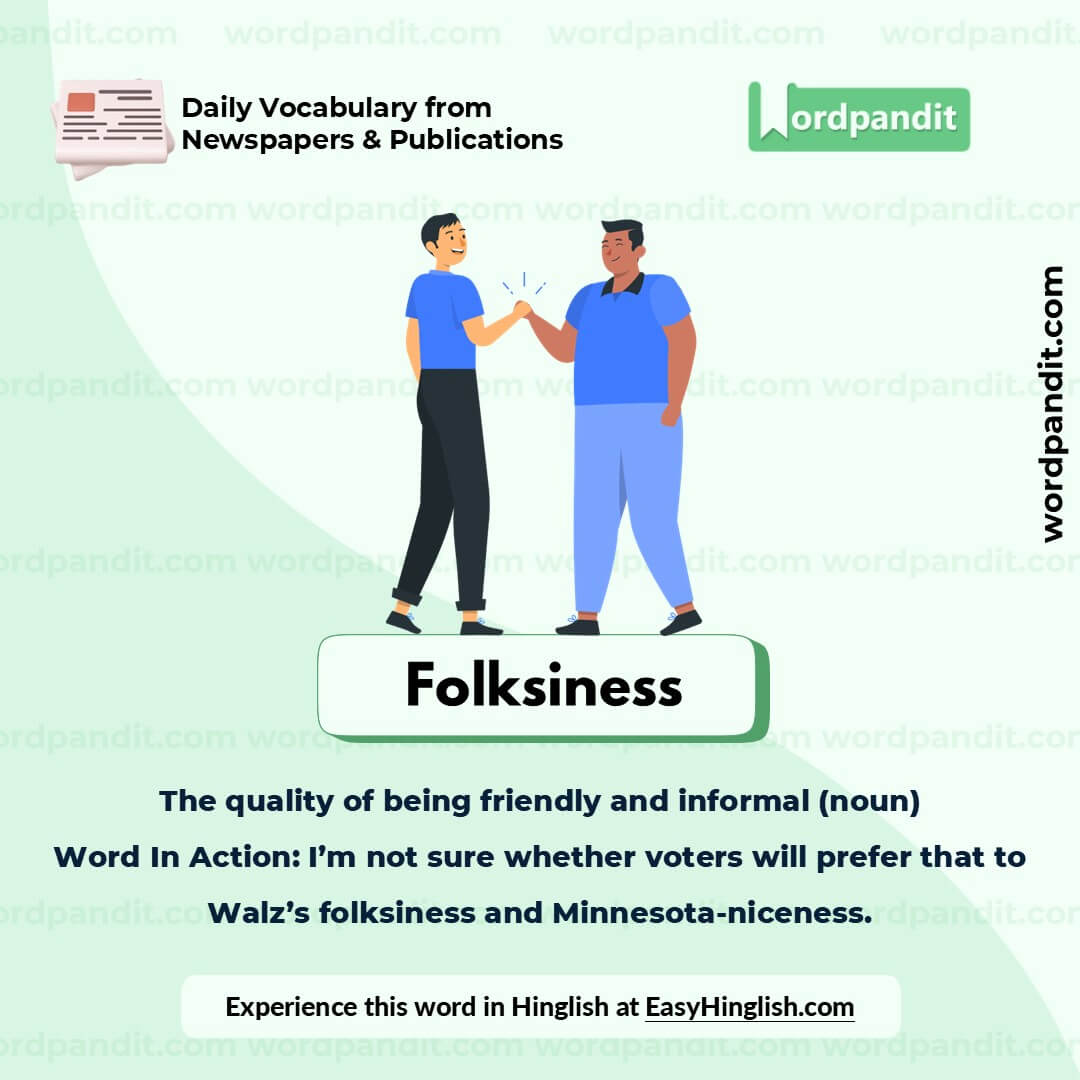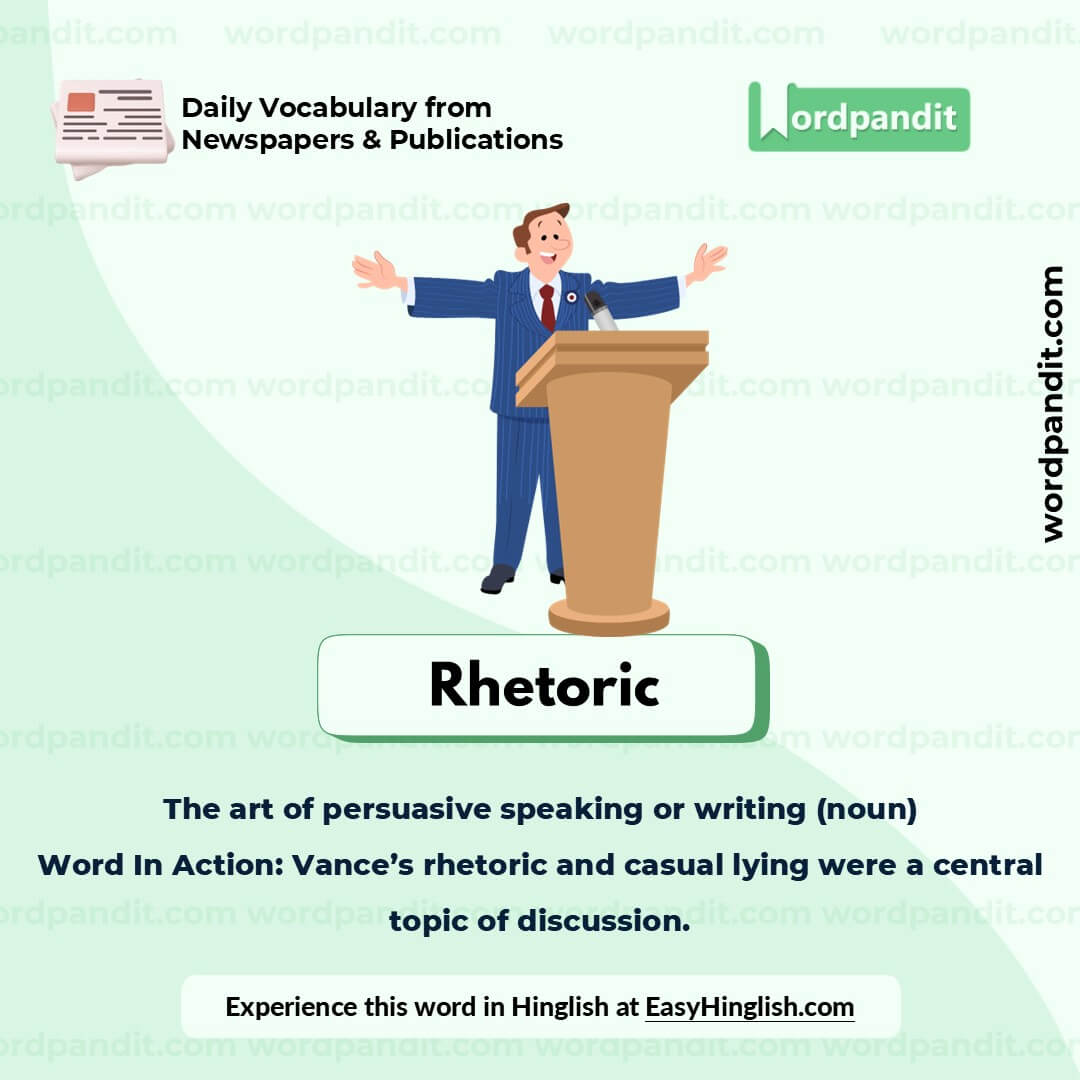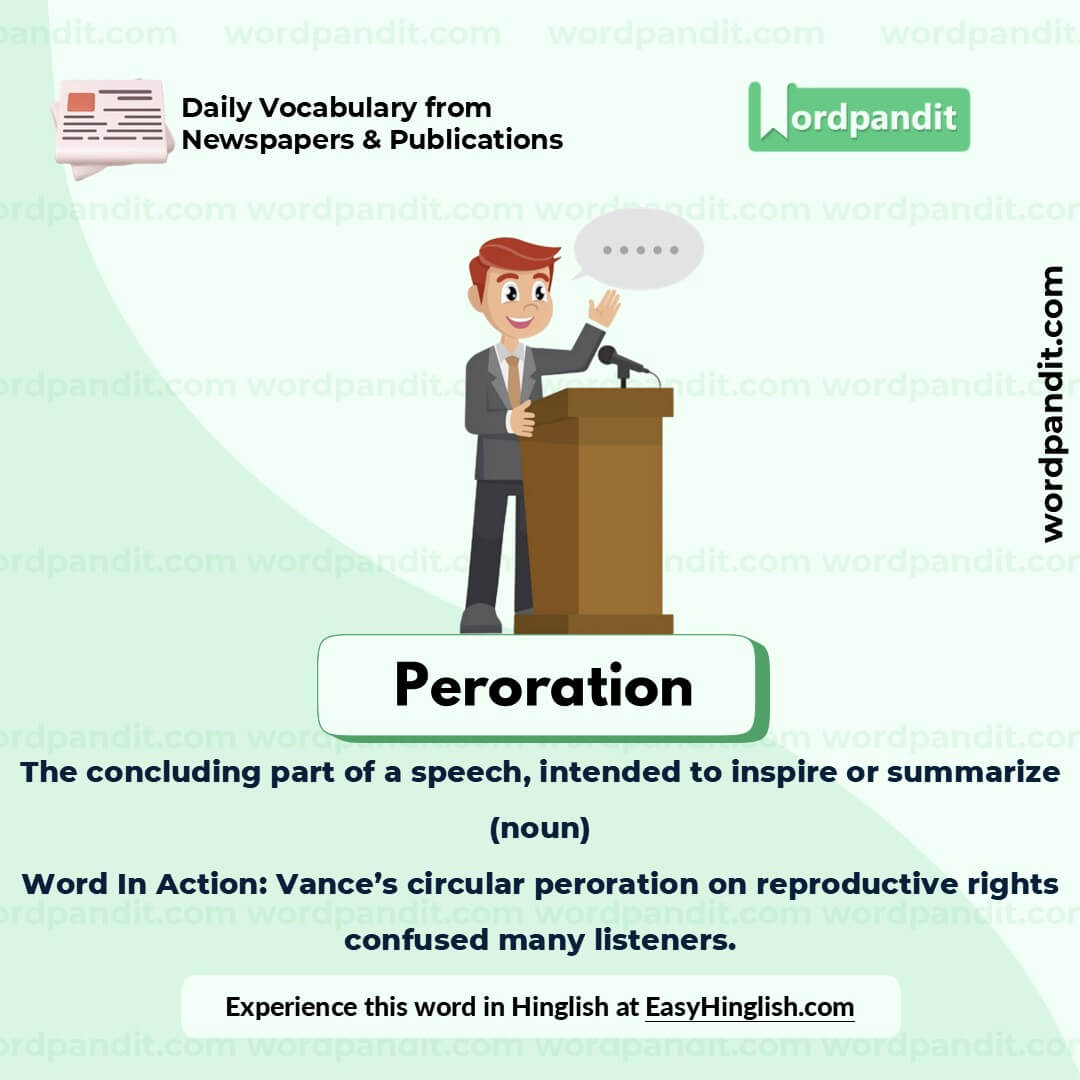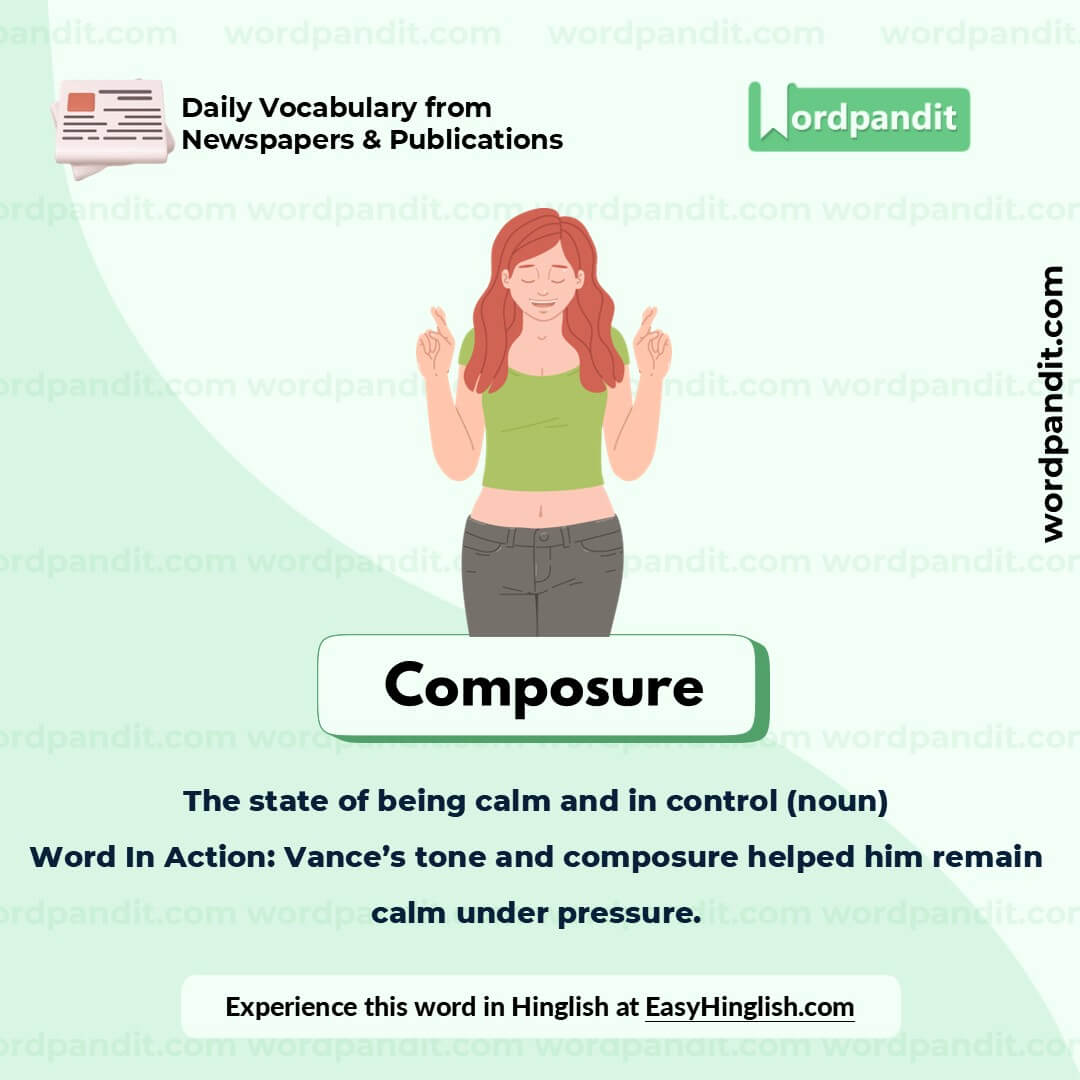Daily Vocabulary from International Newspapers and Publications
Expand Your Vocabulary with Wordpandit’s Global Vocabulary Hub
At Wordpandit, we are committed to helping you develop a truly global vocabulary by drawing from some of the most respected international publications. This section is designed to keep you ahead of the curve by introducing you to words that define global conversations and trends.
The Power of Global Sources
To help you think and communicate on a global scale, we curate vocabulary from renowned international sources, such as:
- The New York Times
- The Washington Post
- BBC
- The Guardian
- The Economist
- Scientific American
- Psychology Today
- And many more...
Stay Global, Stay Competitive
Our daily updates from international publications ensure you are consistently exposed to new words that reflect global news and developments, making sure your vocabulary is not only current but also globally relevant.
Enhance Your Global Perspective
Whether you’re preparing for international exams, aiming to excel in global business communication, or want to enhance your language skills for personal growth, Wordpandit offers the resources you need to thrive in a global context.
Effective Learning, Global Reach
Our learning methodology combines global examples, memory aids, and interactive activities, allowing you to internalize new words effectively and apply them in real-world scenarios.
Begin Your Global Vocabulary Journey Now!
Why Choose Wordpandit?
Practical Learning: Focus on words you'll actually encounter in real-world reading, enhancing your comprehension and communication skills.
Diverse Content: From current affairs to scientific breakthroughs, our varied sources expose you to vocabulary across multiple domains.
Effortless Integration: Make Wordpandit a part of your daily routine. Just a few minutes each day can significantly boost your lexicon over time.
Your Path to Vocabulary Mastery
- Visit our Daily Vocabulary section regularly
- Explore new words and their usage in context
- Practice incorporating these words into your own writing and speech
- Track your progress as your vocabulary expands
Start Your Journey Today
Embark on your vocabulary enhancement journey with Wordpandit. By consistently engaging with our daily posts, you'll build a robust vocabulary that serves you well in academic, professional, and personal contexts.
Remember, a word a day keeps linguistic limitations at bay. Make Wordpandit your daily companion in the quest for vocabulary excellence!
WORD-1: Folksiness
Context:
"I’m not sure whether voters will prefer that to Walz’s folksiness and Minnesota-niceness." - The Washington Post
Explanatory Paragraph:
Folksiness refers to a casual, friendly, and unpretentious manner, often associated with rural or traditional customs. It's a quality that helps people relate to each other easily and comfortably.
Meaning: The quality of being friendly and informal (noun)
Pronunciation: FOHK-see-nis
Difficulty Level: ⭐⭐⭐ (Intermediate)
Etymology: From "folk," meaning "people" or "common people," with the suffix "-ness" indicating a state or quality.
Synonyms & Antonyms:
Synonyms: down-to-earth, affable, unpretentious, neighborly
Antonyms: formal, distant, impersonal
Usage Examples:
- His folksiness made him a favorite among the town's residents.
- The politician's folksiness helped him connect with voters from rural areas.
Cultural Reference:
"Folksiness is often seen as a political asset, especially in regions that value down-home charm." - Political Commentators
Think About It:
Can folksiness be an advantage in professional settings, or is it more appropriate in personal interactions?
Quick Activity:
Think of a famous figure known for their folksiness. What traits make them approachable?
Memory Tip:
Remember that folksiness comes from "folk" (the common people), so it’s all about being down-to-earth and relatable.
Real-World Application:
Using folksiness in speeches or interviews can make leaders seem more approachable and trustworthy.
WORD-2: Rhetoric
Context:
"Vance’s rhetoric and casual lying." - The Washington Post
Explanatory Paragraph:
Rhetoric is the art of effective or persuasive speaking or writing, often used to influence others. However, it can also refer to language that is insincere or lacking in meaningful content.
Meaning: The art of persuasive speaking or writing (noun)
Pronunciation: REH-tuh-rik
Difficulty Level: ⭐⭐⭐ (Intermediate)
Etymology: From Greek rhetorike, meaning "art of an orator"
Synonyms & Antonyms:
Synonyms: oratory, eloquence, discourse
Antonyms: silence, plain speaking
Usage Examples:
- His rhetoric was powerful, but it lacked real substance.
- The senator's rhetoric appealed to the public's emotions.
Cultural Reference:
"Rhetoric is the art of ruling the minds of men." - Plato
Think About It:
Can rhetoric be both persuasive and truthful, or does it always risk manipulation?
Quick Activity:
Write a short speech using rhetorical techniques to persuade someone of your opinion.
Memory Tip:
Think of rhetoric as the "right trick" to sway opinions through speaking or writing.
Real-World Application:
Understanding rhetoric is crucial in fields like law, politics, and advertising, where persuasion is key.
WORD-3: Filibusters
Context:
"Trump’s debate style is compared to 'filibustering.'" - The Washington Post
Explanatory Paragraph:
Filibuster refers to a tactic used, especially in legislative settings, where a speaker deliberately extends a debate to delay or prevent a vote. In a more general context, it can refer to any lengthy or obstructive speech.
Meaning: A prolonged speech that obstructs progress in a legislative assembly (noun)
Pronunciation: FILL-uh-bus-ter
Difficulty Level: ⭐⭐⭐ (Intermediate)
Etymology: From the Spanish word filibustero, originally meaning "pirate" or "freebooter."
Synonyms & Antonyms:
Synonyms: stalling, obstruction, delay
Antonyms: prompt action, expediency
Usage Examples:
- The senator launched a filibuster to prevent the bill from passing.
- The filibuster lasted for 24 hours, halting the legislative session.
Cultural Reference:
In the U.S. Senate, filibusters are often used as a strategy to block legislation from being voted on.
Think About It:
Is filibustering a legitimate form of debate, or does it merely obstruct progress?
Quick Activity:
Think of an argument that could last for hours. How would you keep it going without repeating yourself?
Memory Tip:
Remember that a filibuster "fills" time with long speeches, blocking action.
Real-World Application:
Filibusters are often used in political debates as a strategic tool to prevent unwanted legislation.
WORD-4: Peroration
Context:
"Vance’s circular peroration on reproductive rights." - The Washington Post
Explanatory Paragraph:
A peroration is the concluding part of a speech, typically intended to inspire enthusiasm or summarize key points. Sometimes it can be long-winded or repetitive, as in the case of a circular argument.
Meaning: The concluding part of a speech, intended to inspire or summarize (noun)
Pronunciation: per-uh-RAY-shun
Difficulty Level: ⭐⭐⭐⭐ (Advanced)
Etymology: From Latin perorare, meaning "to speak at length."
Synonyms & Antonyms:
Synonyms: conclusion, summation, finale
Antonyms: introduction, preamble, exordium
Usage Examples:
- The speaker's peroration was both inspiring and memorable.
- After a lengthy argument, the lawyer delivered a powerful peroration to close her case.
Cultural Reference:
"The peroration is often used to leave a lasting impression on the audience, such as Martin Luther King Jr.'s famous conclusion in his 'I Have a Dream' speech."
Think About It:
How important is the peroration in leaving a strong impact on an audience? Can a weak peroration undermine an otherwise strong speech?
Quick Activity:
Write a short peroration for a speech about a cause you care deeply about.
Memory Tip:
Think of peroration as the final "oration" (speech), intended to wrap everything up.
Real-World Application:
Perorations are used in politics, law, and public speaking to leave the audience with a powerful final message.
WORD-5: Composure
Context:
"Vance’s tone and composure." - The Washington Post
Explanatory Paragraph:
Composure refers to the state of being calm and in control of oneself, especially in difficult or stressful situations. Maintaining composure helps one respond thoughtfully rather than emotionally.
Meaning: The state of being calm and in control (noun)
Pronunciation: kum-POH-zher
Difficulty Level: ⭐⭐ (Beginner)
Etymology: From the Latin componere, meaning "to put together" or "to arrange."
Synonyms & Antonyms:
Synonyms: calmness, self-control, poise, equanimity
Antonyms: agitation, nervousness, panic
Usage Examples:
- Despite the chaos around her, she maintained her composure throughout the meeting.
- He lost his composure during the heated debate and began to shout.
Cultural Reference:
"Composure in the face of adversity is a trait often admired in leaders and athletes." - Sports Psychologists
Think About It:
How can someone train themselves to maintain composure in stressful situations?
Quick Activity:
Practice deep breathing for one minute. How does it affect your composure?
Memory Tip:
To remember composure, think of "compose"—you’re composing yourself, keeping calm and collected.
Real-World Application:
Maintaining composure is crucial in stressful situations, such as during interviews, exams, or conflicts.


















